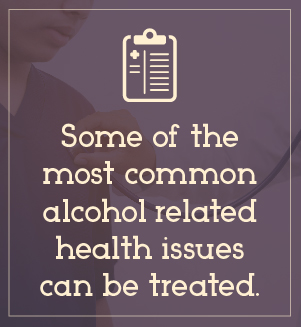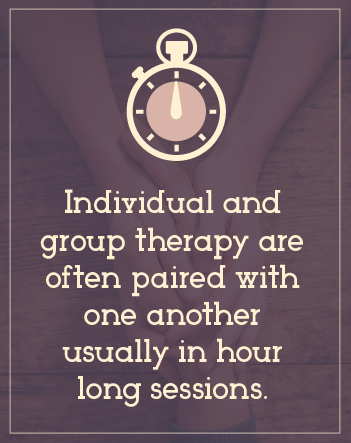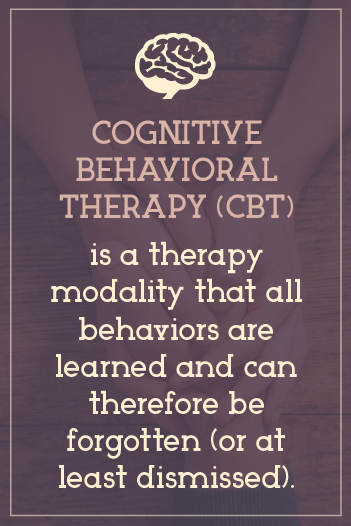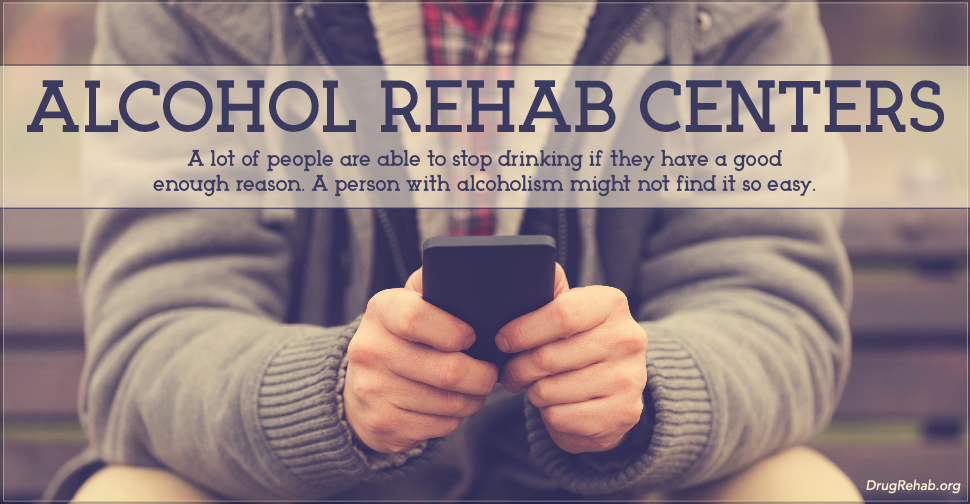Alcohol Abuse, Binge Drinking and Alcoholism
The National Institute on Alcohol Abuse and Alcoholism (NIAAA) states, “15.1 million adults ages 18 and older had AUD (Alcohol Use Disorder). This includes 9.8 million men and 5.3 million women.”
By definition, with alcohol abuse “you are not physically dependent, but you still have a serious problem. The drinking may cause problems at home, work, or school. It may cause you to put yourself in dangerous situations, or lead to legal or social problems” (U.S. National Library of Medicine). So what does that mean? If you get intentionally get drunk, or cope with problems or emotions with alcohol, you’re abusing it. This is also known as an alcohol use disorder which is often associated with binge drinking.

Binge drinking is most popular in teenagers and young adults, but all ages can binge drink—essentially it’s 5 or more drinks in two hours for men, and 4 or more for women. Everyone’s body metabolizes alcohol differently, and it can also depend on a person’s body fat, diet and overall organ health.
What If I Can’t Stop Drinking?
A lot of people are able to stop drinking if they have a good enough reason—whether that’s failing health, a warning from an employer or spouse, or trouble with the law. A person with alcoholism might not find it so easy. Alcoholism is defined as a disease in which a person isn’t able to stop on their own. Alcoholism is likely to cause:
- Craving – a strong need to drink
- Loss of control – not being able to stop drinking once you’ve started
- Physical dependence – withdrawal symptoms
- Tolerance – the need to drink more alcohol to feel the same effect
(U.S. National Library of Medicine)
What Can Alcohol Do To My Health?
 Most foreign chemicals that go into the body can cause problems; alcohol is no different. Over time abusing alcohol can have a lot different adverse effects on a person’s health. Health problems can include: cirrhosis of the liver, alcoholic cardiomyopathy, kidney failure, bone marrow suppression, and brain damage. Other disorders like Wernicke–Korsakoff syndrome are also possible.
Most foreign chemicals that go into the body can cause problems; alcohol is no different. Over time abusing alcohol can have a lot different adverse effects on a person’s health. Health problems can include: cirrhosis of the liver, alcoholic cardiomyopathy, kidney failure, bone marrow suppression, and brain damage. Other disorders like Wernicke–Korsakoff syndrome are also possible.
Some of the most common alcohol related health issues can be treated; this can be through transplant surgeries, and sometimes it’s through an intervention followed by complete abstinence of alcohol. When a person gets wet brain (Wernicke–Korsakoff syndrome), there is very little chance for a cure.
Quitting Starts With Admitting There’s A Problem
Unless you’re facing some time behind bars, or laying in a hospital bed, you likely have free will to drink. If you have a serious problem with alcohol, people might have told you that you need to stop. Maybe you’ve been fired from a job, or your significant other has dumped you because of your drinking. These are all serious issues, and real possibilities, but for a person with an alcohol problem they aren’t going to force you stop drinking.
You have to admit that there’s a problem before anything else can happen—even still, being a disease (or disorder) of relapse, for most people alcoholism and alcohol use disorders are harder to quit than simply making a promise. Even after a person quits, the withdrawal from alcohol can be so intense that they’re brought back to the bottle.
Common Withdrawal Symptoms From Alcohol
“Alcohol withdrawal refers to symptoms that may occur when a person who has been drinking too much alcohol on a regular basis suddenly stops drinking alcohol” (U.S. National Library of Medicine). Withdrawals usually get worse depending on the frequency and amount of alcohol that they drink. A person who only goes on weekend benders might not have as bad of withdrawals as a 15 year daily drinker.
Withdrawals are a body’s reaction to lack of a substance. During this time a person is fighting off the urge to drink, pushing the alcohol out of their system, and trying to cope without alcohol (or other drugs).
Common symptoms include:
- Anxiety or nervousness
- Depression
- Fatigue
- Irritability
- Jumpiness or shakiness
- Mood swings
- Nightmares
- Not thinking clearly
Other symptoms may include:
- Clammy skin
- Enlarged (dilated) pupils
- Headache
- Insomnia (sleeping difficulty)
- Loss of appetite
- Nausea and vomiting
- Pallor
- Rapid heart rate
- Sweating
- Tremor of the hands or other body parts
A severe form of alcohol withdrawal called delirium tremens can cause:
- Agitation
- Fever
- Seeing or feeling things that aren’t there (hallucinations)
- Seizures
- Severe confusion
(U.S. National Library of Medicine)
Treatment Starts With Detoxification
Detoxification is the period of time that a person rids their body of an unwanted chemical; in this case is alcohol. During the detoxification period, a person is likely to go through the brunt of their withdrawals. Because withdrawals usually peak between 1 and 3 days; a detoxification is usually completed in 7 days. Withdrawals can be dangerous, and we don’t advise a self administered detoxification.

Addiction professionals aid a person during the detoxification process to make sure they’re comfortable, getting enough nutrients and hydration. A lot of people come into rehab malnourished and dehydrated, and it’s important to get them back to full health before beginning therapy and continuing on with treatment.
What Kind Of Treatment To Expect At Alcohol Rehab
Treatment completely depends on the person, their frequency of drinking, and a few other factors. Each person who comes into treatment is different, and there really isn’t a one size fits all modality; it’s tailored to the individual. A lot of people suffering from addiction have a record of dishonesty which may have saved their credibility in the past or freed them from judgement. In order for treatment and recovery to work, a person must be completely honest from the beginning.
From that point on, the healing can begin. The most successful therapies can include, but are not limited to:
- Individual Evaluation
- Inpatient and Outpatient Treatment
- Individual And Group Therapy
- Family And Peer Support
- Motivational Interviewing
- Dialectical Behavior Therapy
- Cognitive Behavioral Therapy
- Medication-Assisted Therapy
- Outdoor Therapy and Mindfulness
- Nutrition and Diet Coaching
- Relapse Prevention Group Classes
- Twelve Step Support
- Aftercare Support
Evaluation Of Alcohol Use
Evaluation is where professionals get a chance know each patient and identify their needs. During this time, an addiction specialist can help a patient decide which treatment to go with. As previously stated, honesty is essential during the evaluation period, a person’s future and recovery can depend on it.
Individual And Group Therapy At Alcohol Rehab
 Individual and group therapy are often paired with one another during alcohol rehab—usually in hour long sessions. Individual therapy can help a person feel more comfortable with their therapist and learn to trust them. During this time, therapists can also get a chance to work with a patient and understand their past and current mental state—which can be crucial to figuring out why they drink so much.
Individual and group therapy are often paired with one another during alcohol rehab—usually in hour long sessions. Individual therapy can help a person feel more comfortable with their therapist and learn to trust them. During this time, therapists can also get a chance to work with a patient and understand their past and current mental state—which can be crucial to figuring out why they drink so much.
Group therapy can work similarly, and along with helping them to dig deeper into their past, it can help them to realize that they aren’t alone. During group therapy, a patient can hear about alcohol abuse from others suffering from alcoholism and other disorders. It can also help a person be a part of a recovery community and feel an overall sense of belonging.
Family And Peer Support For Alcohol Rehab
Both during rehab and after the fact, a person’s family and peers can be one of their biggest assets. People need support and recognition—it’s just part of who we are. Sometimes having that extra push from a loved one can help, and to be better understood by them makes recovery easier. Family and peer support groups can help your loved ones to understand that addiction is a disease, and that you didn’t intentionally hurt them.
According to the Substance Abuse and Mental Health Services Administration, “Peer support services usually operate in conjunction with clinical services which amplify the benefit of treatment by engaging peers in services they might otherwise not accept, offering ongoing support and psychosocial rehabilitation, and encouraging peers to stay in treatment and services by sharing their stories of recovery.”
Furthermore, “peer support services are a valuable adjunct to traditional care that are known to contribute to improved outcomes in employment, education, housing stability, satisfaction, self-esteem, medication adherence, and decrease in the need for more costly services, such as hospitalizations.”
Behavioral Therapy At Alcohol Rehab
“Behavioral approaches help engage people in drug abuse treatment, provide incentives for them to remain abstinent, modify their attitudes and behaviors related to drug abuse, and increase their life skills to handle stressful circumstances and environmental cues that may trigger intense craving for drugs and prompt another cycle of compulsive abuse” (National Institute on Drug Abuse). Two of the most common behavioral therapies used in alcohol rehab are dialectical behavior therapy, and cognitive behavioral therapy.
 Cognitive Behavioral Therapy For Alcohol Use Disorder
Cognitive Behavioral Therapy For Alcohol Use Disorder
Cognitive behavioral therapy (CBT) is a therapy modality that can be used for treatment of alcohol use disorders by working with the theory that all behaviors are learned and can therefore be forgotten (or at least dismissed). When a person goes through life coping with issues in an unhealthy way like getting drunk or high, they don’t ever really get to the root of a problem—they more or less just sweep it under the rug. With CBT, therapists can help a patient replace their negative attitudes or feelings with positive ones.
Dialectical Behavior Therapy For Alcohol Use Disorder
Dialectical behavior therapy (DBT) stems from CBT and can a person deal with problem behaviors; first by pinpointing the behaviors, and then changing them. The skills taught in DBT are mindfulness, distress tolerance, interpersonal effectiveness, and emotion regulation. DBT can be helpful for treating co-occurring disorders like alcohol use disorder and depression. Both cognitive behavioral therapy and dialectical behavior therapy can help a person to understand that their previous way of coping with life was unhealthy, and also arm them with the know-how to refrain from relapse.
Alcohol Medication-Assisted Therapy
Sometimes a person suffering from alcoholism can’t see past the withdrawal or cravings to drink. In some of these cases a medication-assisted therapy will be necessary for proper treatment. These medications can include Naltrexone, Disulfiram, Acamprosate Calcium, and Naltrexone for Extended Release. Each of these medications is FDA approved, but should only be used when needed in a professional setting.
Relapse Prevention Sessions
When you stop drinking, it can be easy to forget that addiction is a progressive illness, and that you won’t ever be able to drink normally again. When a person suffering from alcoholism gets some sober time they might think, “well there’s no way I could possibly be an alcoholic, if I can stay sober for a year.” It’s a common delusion that often ends in relapse. With relapse prevention you’ll learn how to handle those brief delusional thoughts and carry on with recovery.
Twelve Step Support For Alcohol Treatment
Another successful treatment method is the twelve step support group. Some alcohol rehab centers are based on the guidelines and principles of Alcoholics Anonymous (AA). AA helps a person quit drinking by understanding that alcoholism is a disease and a mental obsession, but also because of spiritual illness. It can help them realize that they’re powerless over alcohol and that willpower alone isn’t enough to quit. Groups like Alcoholics Anonymous can also help a person see that their drinking is hurting others.
How Long Does Rehab Last?
There are a few lengths for rehab, most of which fall into either short-term or long-term. Short-term rehab is anything from 7 to 30 days. Long-term rehab is anything longer than 30 days; usually 60 and 90 days. Some treatment centers offer long-term treatment for a year or longer depending on a person’s addiction. Studies say that treatment for shorter 90 days is less effective, but truthfully any treatment is better than no treatment.

What About After I Leave Rehab?
It seems like the easiest path after rehab is just to go on with your life like nothing happened, but that can be dangerous and land a person right back where they started. Aftercare support is one thing that can help a person stay on the road to recovery after they leave rehab. When a person leaves an inpatient rehab (or outpatient) rehab center, therapists, psychologists and other addiction specialists reach out to them to see how everything is going in the “outside world.”
A relapse can be pretty subtle and can happen when everything else seems fine. A person must stick to their program to ensure a long term recovery, because “the chronic nature of the disease means that relapsing to drug abuse at some point is not only possible, but likely. Relapse rates for people with addiction and other substance use disorders are similar to relapse rates for other well-understood chronic medical illnesses such as diabetes, hypertension, and asthma, which also have both physiological and behavioral components” (National Institute on Drug Abuse).
I Don’t Think I Can Afford To Go To Rehab
This can all be a lot to take in, and you might be having a hard time deciding whether or not to go to rehab. Maybe the dollar signs are making your decision harder. Think about the last time you got a paycheck and it was gone by Monday. Now think about the amount of that money that went to alcohol, court fines etc… Wouldn’t it be nice to be able to put it away and not have to worry about it?
We understand that rehab can be expensive, but when you compare it to the amount of money you’ll be saving by not drinking, it’s a win. Not to mention there are payment methods that can save you money as well. Some of these options can include:
- Government Grants and Scholarships
- State Financial Aid
- Health Insurance Coverage
- Sliding Fee (Payment Plan)
- Referral to a Lower Cost Treatment
- Or Free Rehab
Finding The Right Alcohol Rehab Center
If you’re at the point where you just don’t know where to go for help, you’ve used up all of your other options, and are scared that you’ll never be able to stop drinking, we can help you. There are a lot of people like you, who never get the treatment they need for alcohol use disorders. In 2015, out of the 15.1 million people with an alcohol use disorder, only about 1.3 million got the treatment they needed (NIAAA). Those who continue drinking might develop further mental problems, health complications, or even die of alcohol poisoning.
The next step is completely up to you, but if you’re sick and tired of being tired and don’t know where else to turn, contact us at 833-473-4227 today to speak to a caring addiction specialist about your options for alcohol rehab. Living and dying with an alcohol problem doesn’t have to be your only option.
For More Information Related to “Alcohol Rehabilitation Centers” Be Sure To Check Out These Additional Resources From DrugRehab.org:
- Year-Long Drug Rehab Programs
- Benefits of Medication Assisted Treatment for Recovery
- What Does Alcohol Do To The Brain?
- The Benefits Of Dialectical Behavioral Therapy (DBT) For Addiction
- The Benefits Of Cognitive Behavioral Therapy (CBT) In Addiction
- What is Alcoholic Hepatitis?


